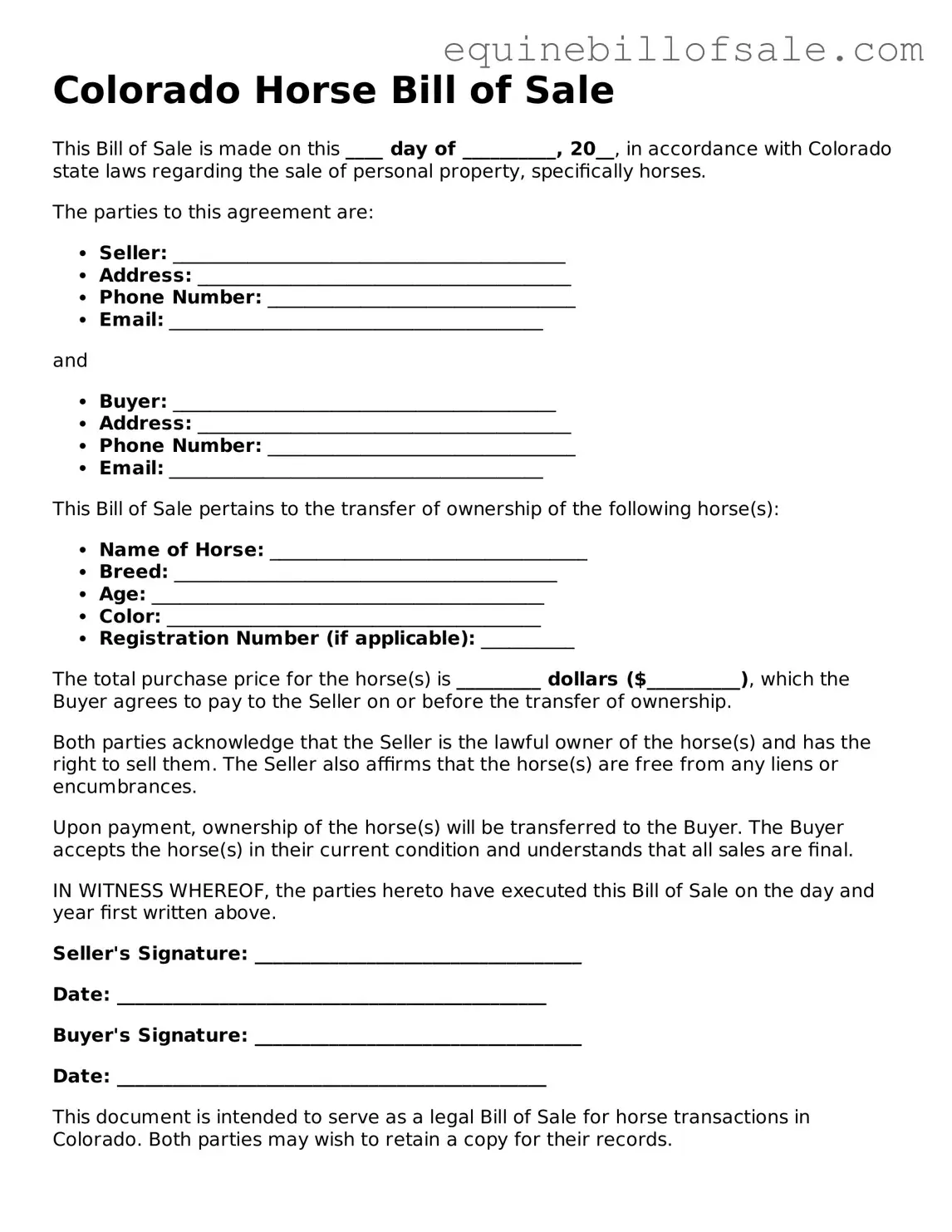What is a Horse Bill of Sale in Colorado?
A Horse Bill of Sale is a legal document that records the transfer of ownership of a horse from one party to another. This form protects both the seller and the buyer by providing proof of the transaction and outlining the terms of the sale.
Is a Horse Bill of Sale required in Colorado?
While it is not legally required to have a Horse Bill of Sale in Colorado, it is highly recommended. This document serves as a record of the sale and can help prevent disputes regarding ownership or the horse's condition after the sale.
What information should be included in the Horse Bill of Sale?
The Horse Bill of Sale should include the following information: the names and addresses of the buyer and seller, a description of the horse (including breed, age, color, and any identifying marks), the sale price, and the date of the transaction. It may also include any warranties or guarantees regarding the horse's health or performance.
Do I need to have the Horse Bill of Sale notarized?
Notarization is not required for a Horse Bill of Sale in Colorado. However, having the document notarized can add an extra layer of authenticity and may be beneficial if any disputes arise in the future.
Can I use a Horse Bill of Sale from another state?
You can use a Horse Bill of Sale from another state, but it is advisable to ensure that it meets Colorado's requirements. Modifying an out-of-state form to include all necessary details relevant to the sale in Colorado is often a good practice.
What if the horse has health issues or defects?
If the horse has known health issues or defects, it is important to disclose this information in the Horse Bill of Sale. This protects the seller from future liability and ensures the buyer is fully informed before completing the purchase.
How do I handle payment when selling a horse?
Payment methods can vary. Cash, certified checks, or electronic transfers are common. Ensure that payment is completed before handing over the Horse Bill of Sale and the horse. Always keep a record of the payment transaction for your records.
What happens if the buyer does not pay?
If the buyer fails to pay, the seller retains ownership of the horse. The Horse Bill of Sale should specify the terms of payment, and if those terms are not met, the seller has the right to take appropriate action, including retaining the horse.
Can I sell a horse that I do not own?
No, you cannot legally sell a horse that you do not own. Doing so can lead to legal consequences. Always ensure that you have clear ownership of the horse before attempting to sell it.
Where can I obtain a Horse Bill of Sale form?
You can find Horse Bill of Sale forms online or create one tailored to your needs. Many legal websites offer templates that you can customize. Ensure that any form you use complies with Colorado laws and includes all necessary information.
